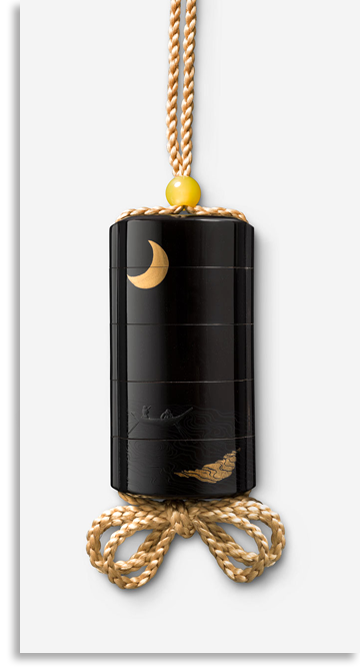The inrō – a stacking box worn by the upscale man on the belt of his kimono – was much more than a useful accessory in 16th to 19th century Japan.
Originally introduced as a practical container for storing sealing accessories, later also used for medicine and other purposes, it soon became a status symbol and connoisseur-signaling jewel. The handy format tempted the manufacturers to prove their artistic virtuosity. The universally designed surfaces fascinate to this day due to their almost infinite variations on decors, themes and styles.
Thematically grouped, the Museum of Lacquer Art presents over 100 objects from its own collection in the special exhibition “Men Make Fashion”.
*The original text is in German.
